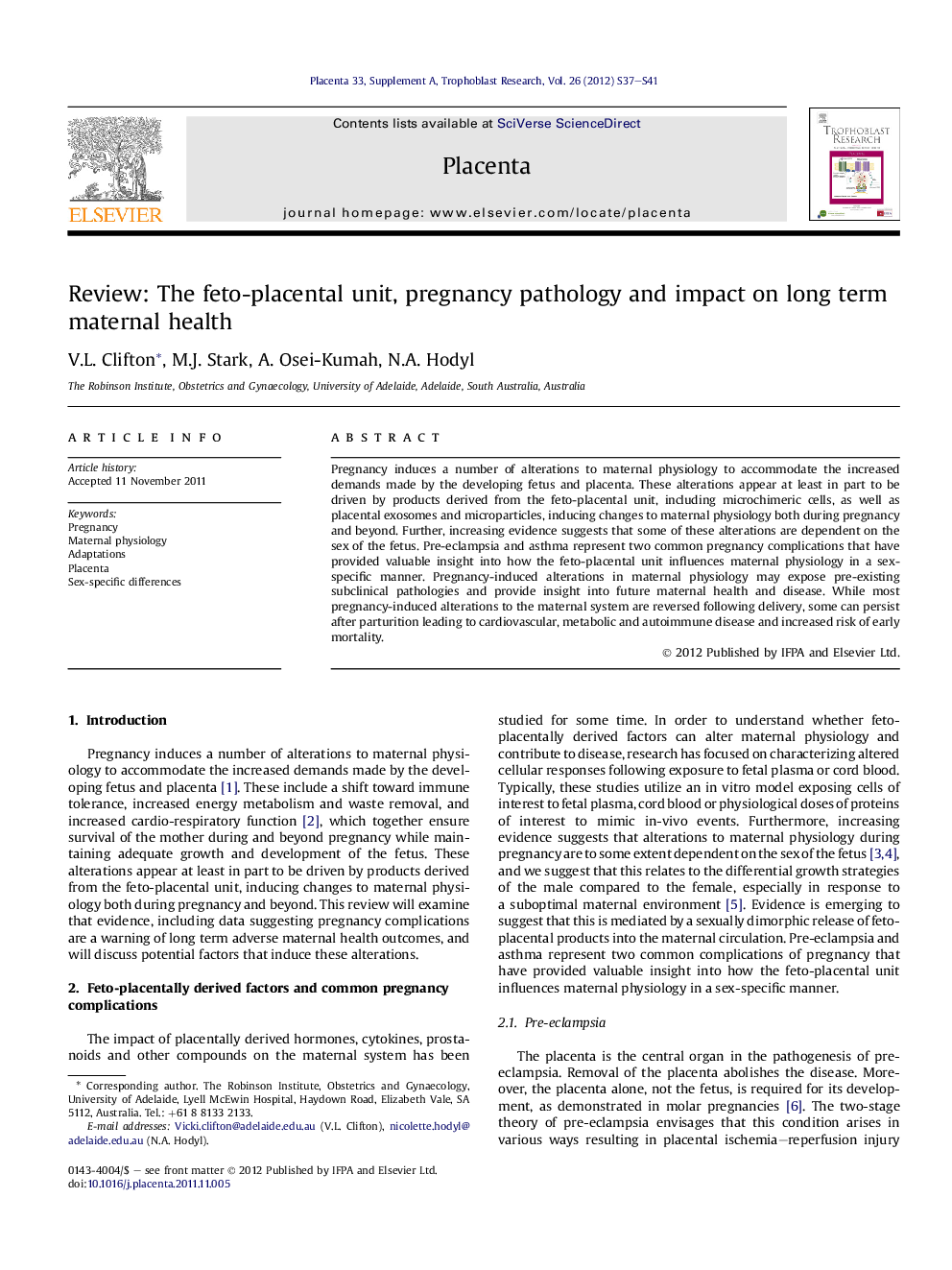| Article ID | Journal | Published Year | Pages | File Type |
|---|---|---|---|---|
| 5896070 | Placenta | 2012 | 5 Pages |
Abstract
Pregnancy induces a number of alterations to maternal physiology to accommodate the increased demands made by the developing fetus and placenta. These alterations appear at least in part to be driven by products derived from the feto-placental unit, including microchimeric cells, as well as placental exosomes and microparticles, inducing changes to maternal physiology both during pregnancy and beyond. Further, increasing evidence suggests that some of these alterations are dependent on the sex of the fetus. Pre-eclampsia and asthma represent two common pregnancy complications that have provided valuable insight into how the feto-placental unit influences maternal physiology in a sex-specific manner. Pregnancy-induced alterations in maternal physiology may expose pre-existing subclinical pathologies and provide insight into future maternal health and disease. While most pregnancy-induced alterations to the maternal system are reversed following delivery, some can persist after parturition leading to cardiovascular, metabolic and autoimmune disease and increased risk of early mortality.
Related Topics
Life Sciences
Biochemistry, Genetics and Molecular Biology
Developmental Biology
Authors
V.L. Clifton, M.J. Stark, A. Osei-Kumah, N.A. Hodyl,
